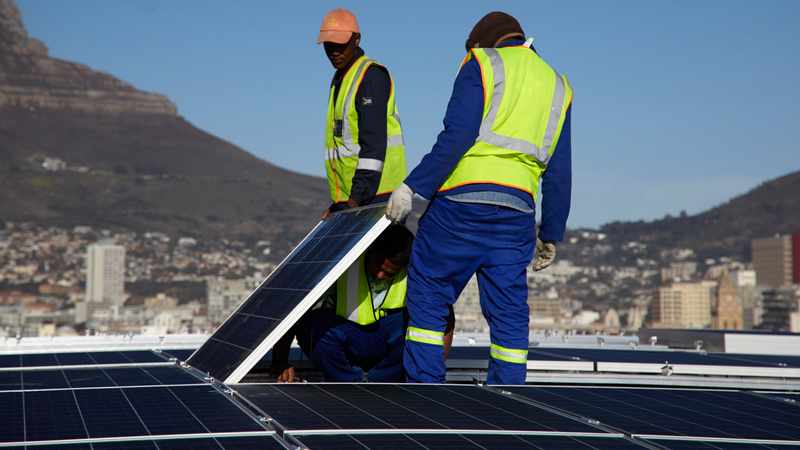
Cape Town – In collaboration with the provincial Department of Economic Development and Tourism, the annual GreenCape’s Market Intelligence Reports (MIRs) have revealed key sectors for business, investment and job creation opportunities of the green economy in the province and their market barriers.
GreenCape senior communications officer and publications manager Nicholas Fordyce said the reports were aimed at highlighting key emerging opportunities in the various green sectors as they worked specifically to drive the growth of the green economy.
“The key sectors include energy services, utility scale renewable energy, electric vehicles, water, sustainable agriculture, and waste in the green economy in the Western Cape,” said Fordyce.
Green Connection, an environmental NGO focused on sustainable development, welcomed the MIRs in the various sectors of the green economy by GreenCape.
The provincial Finance and Economic Opportunities MEC, David Maynier, said: “The annual GreenCape Market Intelligence Reports provide up-to-date insights to help investors understand the emerging opportunities to invest in the green economy, which will ensure we save jobs, rebuild the economy and create an energy-secure future in the Western Cape.”
GreenCape Electric Vehicles (EV) senior analyst Wilberforce Chege highlighted investment opportunities related to the local manufacturing and electrification of public transport, local lithium-ion battery production, local passenger vehicle manufacturing, as well as EV use in construction, retail, and in underground mining.
GreenCape water sector analyst Ashton Mpofu said: “Non-sewered sanitation systems can address the challenge of delivering sustainable sanitation services in new property developments, rural communities, and low-income and informal settlements, with the investment potential of R41.4 billion estimated, in order to achieve universal access to safe sanitation.”
GreenCape waste sector analyst Sam Smout said opportunities within the organics, plastic and e-waste sectors had the potential to add between R0.5bn and R1.1bn in value to the Cape Town economy.
“Businesses are encouraged to reach out to GreenCape’s Western Cape Industrial Symbiosis Programme (WISP), which works with businesses to identify their waste streams and how they can divert that waste from going to a landfill. One business’s waste stream might be another business’s raw material,” said Fordyce.
Green Connection energy economist Gillian Hamilton said they were especially supportive of the focus on smallholder farmers in agriculture as the organisation knew that the future of food security was dependent on small-scale initiatives.
“We are also happy to see the focus on regenerative agriculture and look forward to seeing investments in land restoration and the promotion of soil health,” said Hamilton.
“However, we have concerns about the focus on electric vehicles as rich, developed economies focus on public transport and there are simply not enough materials available globally for everyone to drive an electric vehicle,” she added.
[email protected]
Cape Argus
Credit IOL